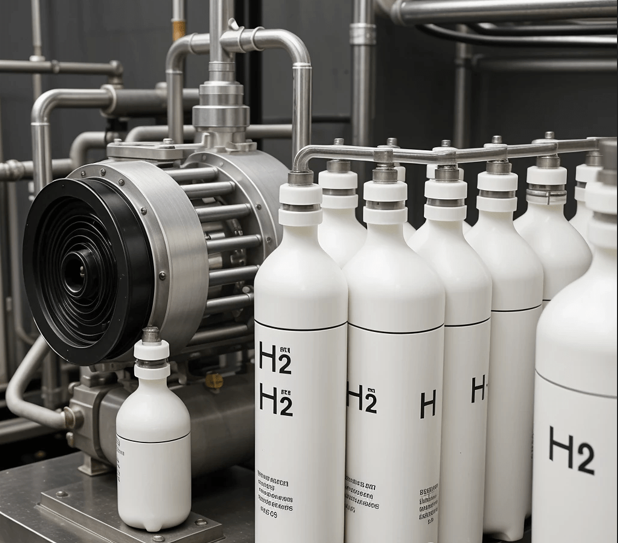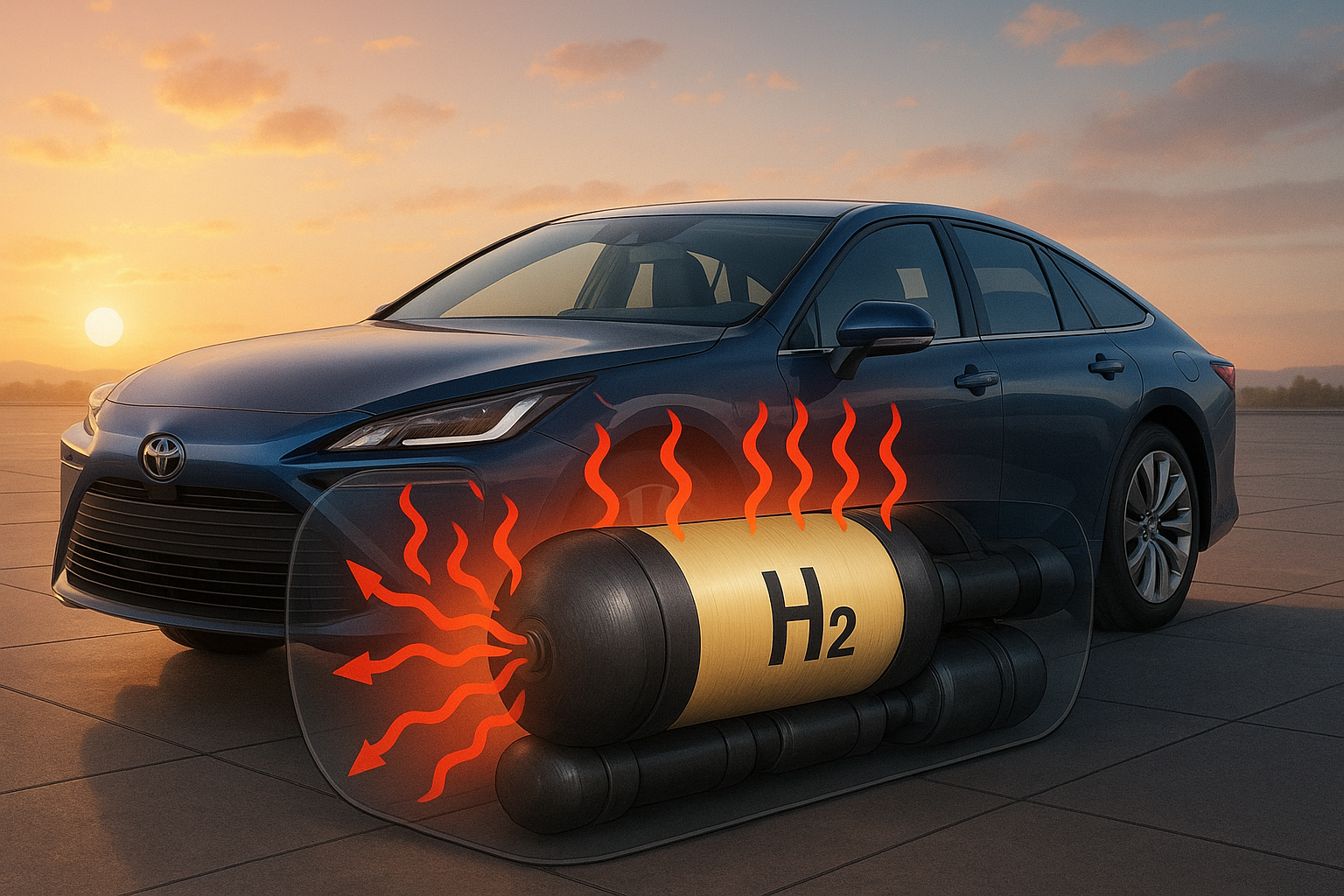Functions covered:
-
Calculation of final temperature of the recharged tank (compressibility effect).
-
Calculation of the necessary heat to dissipate to limit temperature.
-
Calculation of stored mass or volume (function of P and T).
-
Calculation of thermal power (duty) as a function of flow rate.


Final temperature of the recharged vessel
How much heat would have to dissipate during the recharge, in order not to exceed a certain temperature in the process?
Calculate the Volume
or Mass of recharged hydrogen
Calculate the thermal power
to be dissipated in order not to exceed
a certain temperature in the process
Final Recharge Temperature & Mass/Volume Hydrogen Calculator
Hydrogen Recharge Temperature for Pressure Vessels
This calculator estimates the final temperature reached inside a pressure vessel during a hydrogen recharge process. The model assumes an adiabatic filling (no heat exchange with the environment), meaning it reflects the maximum possible temperature according to thermodynamic principles.
This result applies both to direct compression from a compressor and to pressure equalization from another vessel at higher pressure.
→ ✅ Just enter your initial and final conditions in the form and discover the final filling temperature.
Calculate the Volume or Mass of Hydrogen Stored
Once the final temperature is known, use this additional calculator to determine the hydrogen mass or volume inside the vessel. Provide either the mass or the internal volume, and the calculator will give you the missing parameter at the specified temperature and pressure.
🔎 Learn More About Adiabatic Refueling and First Principle of Thermodynamics → See article
" o "
📘 Go Deeper Into Thermal Phenomena in the Expansion of H2 → See article
Heat & Thermal Duty Hydrogen Calculator
How Much Heat Must Be Dissipated During Hydrogen Refueling?
This calculator helps determine the amount of heat that must be dissipated during the hydrogen refill to avoid exceeding a critical temperature.
This is particularly relevant for Type IV tanks, which should not exceed 80°C, as defined by the SAE standard. The excess heat can be removed through pre-cooling of the incoming hydrogen, or via heat exchange with the ambient environment.
→ ✅ Use the form to evaluate different thermal dissipation strategies.
Thermal Duty Calculator: Know Your Required Power
If you already know the mass flow rate of the refill, use this calculator to estimate the thermal power (kW) that needs to be extracted during the process to stay below the temperature threshold.
→ ✅ Use the form to evaluate the power required to dissipate the heat produced during a H2 recharge.
Explore more hydrogen engineering tools
- ⚙️ Calculate hydrogen density based on pressure and temperature
- 🌡️ Estimate temperature drop in expansions
- 🧪 Explore thermodynamic properties for over 100 fluids with CoolProp
- 📩 Subscribe to our newsletter to get updates on new simulators